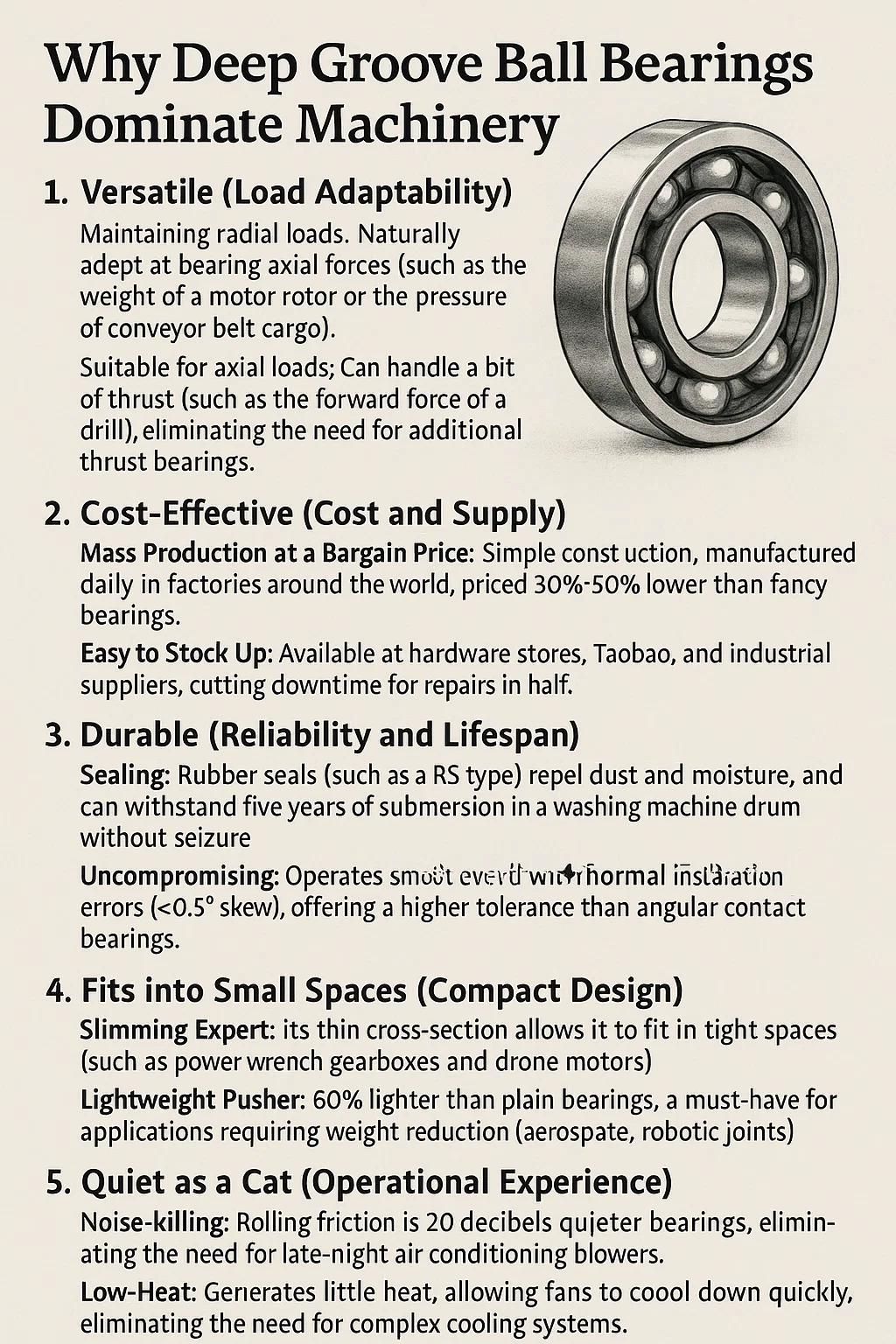 2025.10.13
2025.10.13
 Industry News
Industry News
Why Deep Groove Ball Bearings Dominate Machinery:
Content
Maintaining radial loads: Naturally adept at bearing axial forces (such as the weight of a motor rotor or the pressure of conveyor belt cargo).
Suitable for axial loads: Can handle a bit of thrust (such as the forward force of a drill), eliminating the need for additional thrust bearings.
Combined force nemesis: Can also handle combined forces of rotation and cornering (such as turning a car wheel)—adequate for general use.
Mass-Production at a Bargain Price: Simple construction, manufactured daily in factories around the world, priced 30%-50% lower than fancy bearings.
Easy to Stock Up: Available readily at hardware stores, Taobao, and industrial suppliers, cutting downtime for repairs in half.
Sealing: Rubber seals (such as the RS type) repel dust and moisture, and can withstand five years of submersion in a washing machine drum without seizure. Uncompromising: Operates smoothly even with normal installation errors (<0.5° skew), offering a higher tolerance than angular contact bearings.
Lubrication for the Low-income: Grease the tube once for life (for lightweight equipment), eliminating the need for daily lubrication like with plain bearings.
Slimming Expert: Its thin cross-section allows it to fit into tight spaces (such as power wrench gearboxes and drone motors).
Lightweight Pusher: 60% lighter than plain bearings, a must-have for applications requiring weight reduction (aerospace, robotic joints).
Noise-killing: Rolling friction is 20 decibels quieter than plain bearings, eliminating the need for late-night air conditioning blowers.
Low-Heat: Generates little heat, allowing fans to cool the unit down quickly, eliminating the need for complex cooling systems.
